Overview
Purpose: The Outcome-Based Contracting for High-Dosage Tutoring Model Policy establishes a statewide framework for implementing outcome-based contracts (OBC) for high-dosage tutoring in public schools. The goal is to improve academic outcomes for students through performance-driven agreements that reward providers for achieving measurable results while ensuring mutual accountability and transparency.
Policy Rationale: The model policy is grounded in extensive research showing that high-dosage tutoring—delivered frequently, in small groups, using quality materials—is one of the most effective interventions to accelerate learning. By tying funding to outcomes rather than activities, the policy ensures both public dollars and provider efforts are directed toward measurable student success.
The proposed model policy establishes a structured but flexible partnership between state and local education systems. While the State Education Agency (SEA) provides the overarching framework, tools, and accountability infrastructure, the Local Education Agencies (LEAs) retain autonomy in selecting tutoring providers, structuring contracts, and implementing services at the ground level. The policy promotes mutual responsibility, data transparency, and shared commitment to student success.
Key Provisions:
- Phased Implementation: Launches a two-year statewide rollout beginning in Year 1, with all tutoring contracts required to have at least 40% of their value contingent on student outcomes by Year 2.
- Standards of Excellence:
Defines core elements of effective OBC contracts, including:- Clearly defined student populations and outcomes
- Contingent outcome payments tied to performance
- Mutual accountability provisions
- Continuous improvement structures
- Provider Approval: The state education agency will maintain a vetted list of providers that meet evidence-based criteria and agree to operate under outcome-based contracts.
- Technical Assistance: Establishes funding and support for LEAs to develop and manage outcome-based contracts, including access to templates, training, and data tools.
- Oversight and Reporting: Requires LEAs to report standardized data on student participation and outcomes. The agency will publish annual statewide reports on tutoring effectiveness.
- Enforcement Mechanisms: Authorizes LEAs to withhold payments if performance targets are not met and permits the agency to limit LEA eligibility for future funding if OBC standards are not upheld.
Resources to Support Implementation
For more information, contact Narric Rome, Managing Director, Federal & State Policy ([email protected]).

